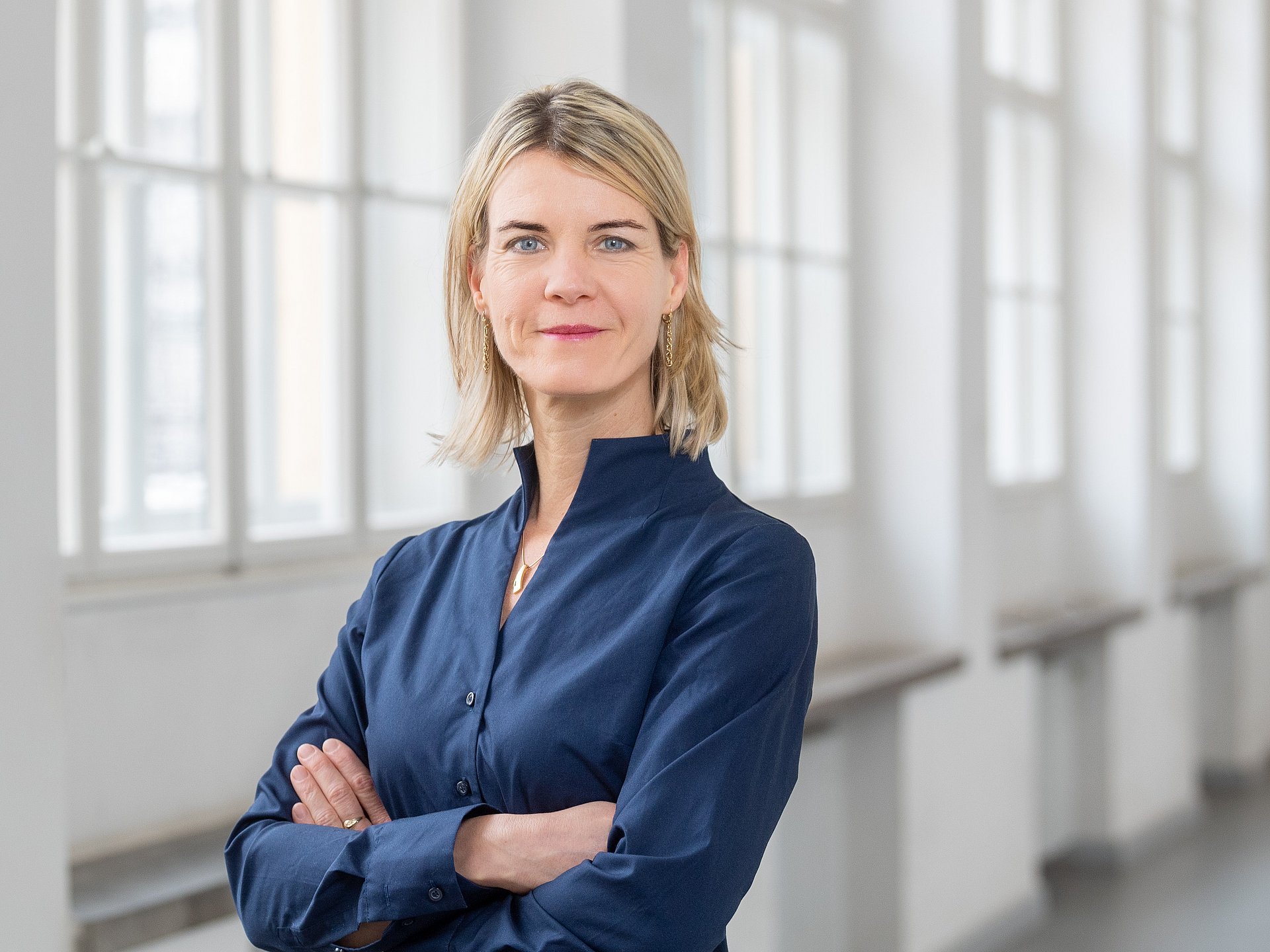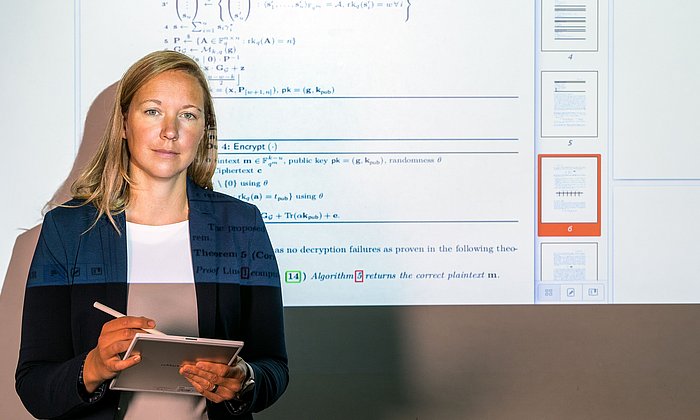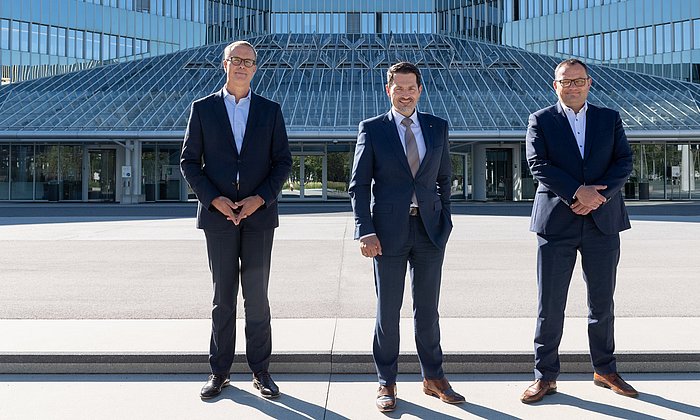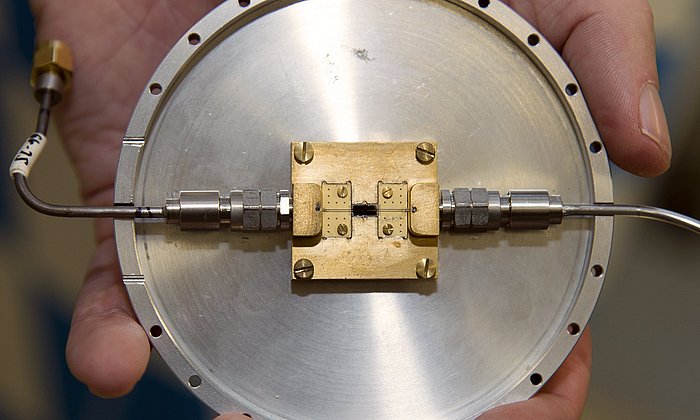NewIn: Barbara Kraus
“Quantum computers will lead to previously unknown applications”
What fascinates you about physics as a subject?
It's the analytical thinking that fascinates me. It's exciting to try to understand nature, to learn from it, and to contemplate whether the knowledge gained can be used for new applications.
To what extent does this apply to quantum mechanics?
A huge amount of money is being invested into the field of quantum technologies around the world. It’s all based on the assumption that quantum computers can be used, for example, to solve tasks that cannot be solved using classical methods – because it would simply take too long. The problem is that quantum systems are not perfect. They are flawed and still relatively small in terms of scale. And a lot of work still needs to be done to improve the systems and to explore how to deploy the current and future systems efficiently.
What approaches are you pursuing?
In terms of research, my group and I are pursuing two main goals. The first is to access the quantum systems using the phenomenon of entanglement. Entanglement is crucial in quantum computing and many-body physics. We want to leverage this phenomenon to better understand how to efficiently use and describe quantum systems. Entanglement is a property that is unique to quantum mechanical systems. This makes it quite challenging to explain, as it does not occur in classical systems and it's not something we encounter in everyday life.
It makes only limited sense to deploy a system where you don’t know if the results are accurate
Can you try giving an explanation anyway?
Imagine that I have two dice. I put each one in a separate box. You get one box, and I keep the other. Now, when I shake my box and open it, I see that the die shows a one, for example. The probability of this happening is one sixth. The probability that your die also shows one, or any other number, is also one sixth. But if the dice are entangled, things are different. When something happens to one die, it affects the other. If my die, which is entangled with yours, shows the number one, I can be certain that your die will also show a one. This fundamental property of quantum physics paves the road to very concrete applications: for example, quantum teleportation. Anton Zeilinger received the Nobel Prize in 2022 for this and other applications of quantum mechanics. Quantum teleportation uses entanglement to transmit information from one place to another. If you now increase the number of quantum systems, the entanglement properties become increasingly complex.
What is the second goal you are pursuing?
Another important point is the verification of quantum systems. Of course, it makes only limited sense to deploy a system that is very capable, but where you don’t know if the results are accurate. That’s why we need to develop methods to check this in quantum computers. One of the things my research group is working on is identifying new, viable applications in quantum information processing, and on verifying quantum processors.
Can you shed some light on the term quantum information theory?
Quantum information theory combines quantum physics and classical information theory. Classical information is a bit, something that is either 0 or 1, like a light switch, which is either on or off. In classical information theory, everything is described using these bits. But in quantum mechanics 0 and 1 are not the only options, but rather every possible superposition of these two states. This means that the quantum mechanical light switch can be on and off all at once. Schrödinger's cat illustrates this so-called superposition principle. The cat is dead and alive at the same time. Applying the superposition principle to multiple particles yields the entanglement properties. We study these properties among others in quantum information theory.
Do you think quantum computers will be found in every household in the future?
We are moving into completely uncharted territory, there are so many possibilities. I think the central role of a quantum computer will not be to replace our current computers and enable everybody to solve very complex tasks. Quantum computers, in my opinion, will be the central element that will allow us to understand quantum systems much better, leading to applications that no one has on their radar yet.
- About the person: Barbara Kraus studied mathematics and physics at the University of Innsbruck. She received her PhD from the Institute of Theoretical Physics there in 2003, and after holding positions at the Max Planck Institute for Quantum Optics and the University of Geneva, she lectured and conducted research as a professor at the University of Innsbruck from 2010. Since January, she has been head of the Chair of quantum algorithms and applications at the TUM School of Natural Sciences. She is a member in the MCQST-Cluster.
- MCQST (Munich Center for Quantum Science and Technology) is examining the scientific basis for complex quantum systems and establishing the technological foundation of quantum technology, a key next-generation technology for the 21st century. The researchers address significant fields of application ranging from quantum computers, powerful quantum information systems and quantum sensors to novel quantum materials.
- All episodes "New In"
Technical University of Munich
Corporate Communications Center
- Stefanie Reiffert
- stefanie.reiffert@tum.de
- presse@tum.de
- Teamwebsite
Contacts to this article:
Prof. Barbara Kraus
Technical University of Munich
Chair of Quantum Algorithms and Applications
Tel: +49 (89) 289 - 53660
barbara.kraus@ph.tum.de




